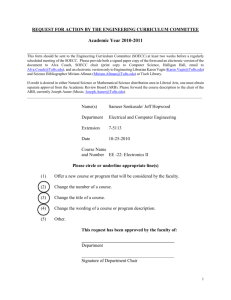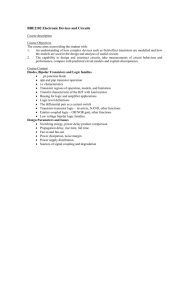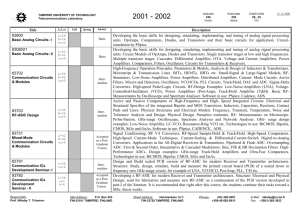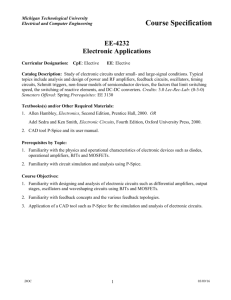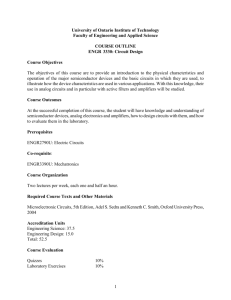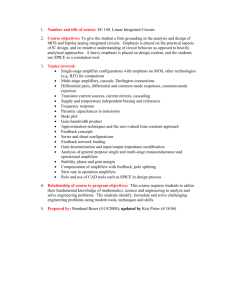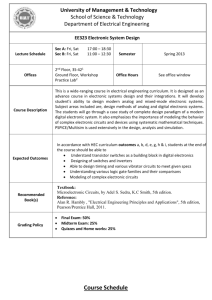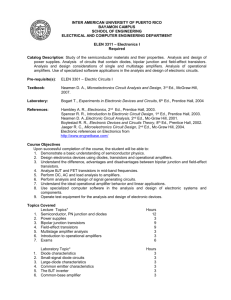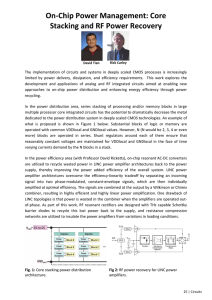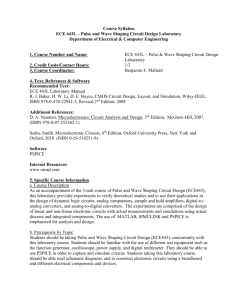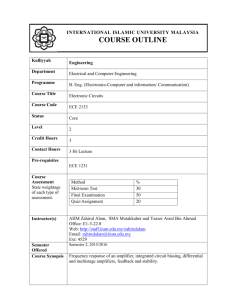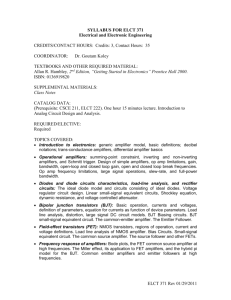Communication Circuits - Communications Engineering Department
advertisement
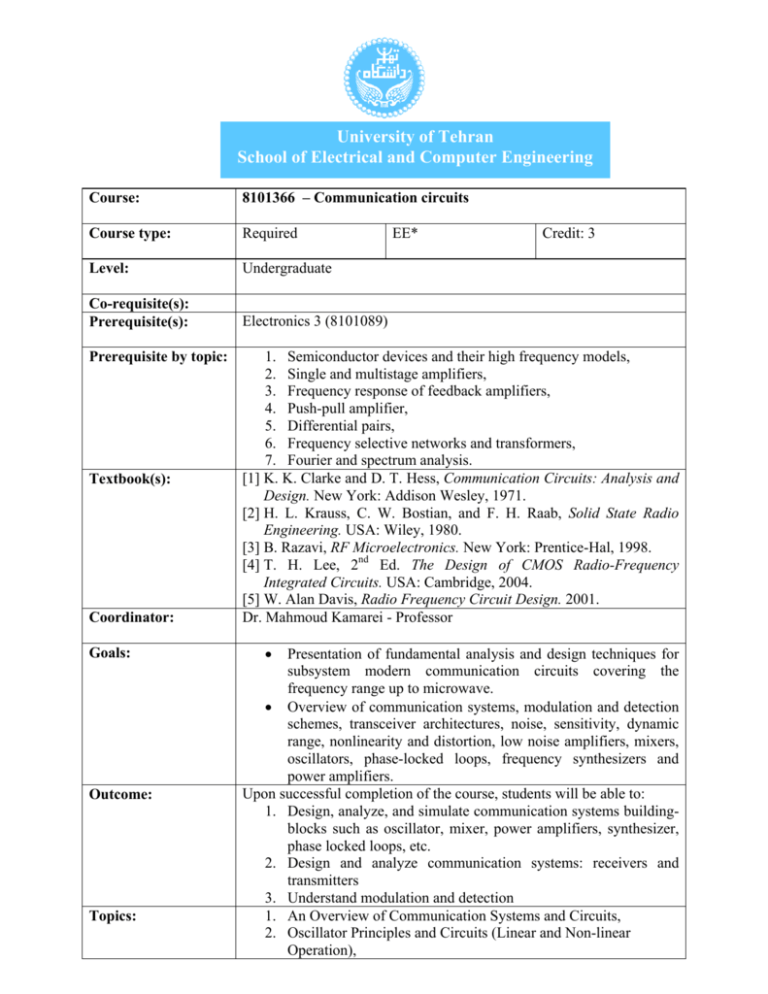
University of Tehran School of Electrical and Computer Engineering Course: 8101366 – Communication circuits Course type: Required Level: Undergraduate Co-requisite(s): Prerequisite(s): Electronics 3 (8101089) Prerequisite by topic: Textbook(s): Coordinator: Goals: Outcome: Topics: EE* Credit: 3 1. Semiconductor devices and their high frequency models, 2. Single and multistage amplifiers, 3. Frequency response of feedback amplifiers, 4. Push-pull amplifier, 5. Differential pairs, 6. Frequency selective networks and transformers, 7. Fourier and spectrum analysis. [1] K. K. Clarke and D. T. Hess, Communication Circuits: Analysis and Design. New York: Addison Wesley, 1971. [2] H. L. Krauss, C. W. Bostian, and F. H. Raab, Solid State Radio Engineering. USA: Wiley, 1980. [3] B. Razavi, RF Microelectronics. New York: Prentice-Hal, 1998. [4] T. H. Lee, 2nd Ed. The Design of CMOS Radio-Frequency Integrated Circuits. USA: Cambridge, 2004. [5] W. Alan Davis, Radio Frequency Circuit Design. 2001. Dr. Mahmoud Kamarei - Professor • Presentation of fundamental analysis and design techniques for subsystem modern communication circuits covering the frequency range up to microwave. • Overview of communication systems, modulation and detection schemes, transceiver architectures, noise, sensitivity, dynamic range, nonlinearity and distortion, low noise amplifiers, mixers, oscillators, phase-locked loops, frequency synthesizers and power amplifiers. Upon successful completion of the course, students will be able to: 1. Design, analyze, and simulate communication systems buildingblocks such as oscillator, mixer, power amplifiers, synthesizer, phase locked loops, etc. 2. Design and analyze communication systems: receivers and transmitters 3. Understand modulation and detection 1. An Overview of Communication Systems and Circuits, 2. Oscillator Principles and Circuits (Linear and Non-linear Operation), Computer usage: Assignments: Projects: Grading: Further readings: Prepared by: 3. Mixer Fundamentals and Circuits, 4. Phase Locked Loops, 5. RF & Small Signal Amplifiers, 6. Noise, 7. Power Amplifiers, 8. Modulator and Detectors. Students must work with circuit simulation software: Advanced Design System (ADS) and HSpice. Design and simulation of building-blocks of communication systems e.g. mixer, power amplifiers, synthesizer, phase locked loops, etc. Study one of the recent developments in communication circuits and systems, and reporting outcome. Computer Assignments: 15% Quiz: 15% Midterm exam: 30% Final exam: 30% Project: 10% [1] J. Everard, Fundamentals of RF Circuit Design: with Low Noise Oscillators. 2001. [2] D. R. Stephens, Phase locked Loops for Wireless Communications: Digital, Analog and Optical Implementation. 2002. [3] S. C. Cripps, Advanced Techniques in RF Power Amplifier Design. 2002. [4] J. Laskar, B. Matinpour, and S. Chakraborty, Modern Receiver Front-Ends: Systems, Circuits, and Integration. 2004. Mahmoud Kamarei October, 2009 Date: *EE: Electrical Engineering CE: Computer Engineering IT: Information Technology
